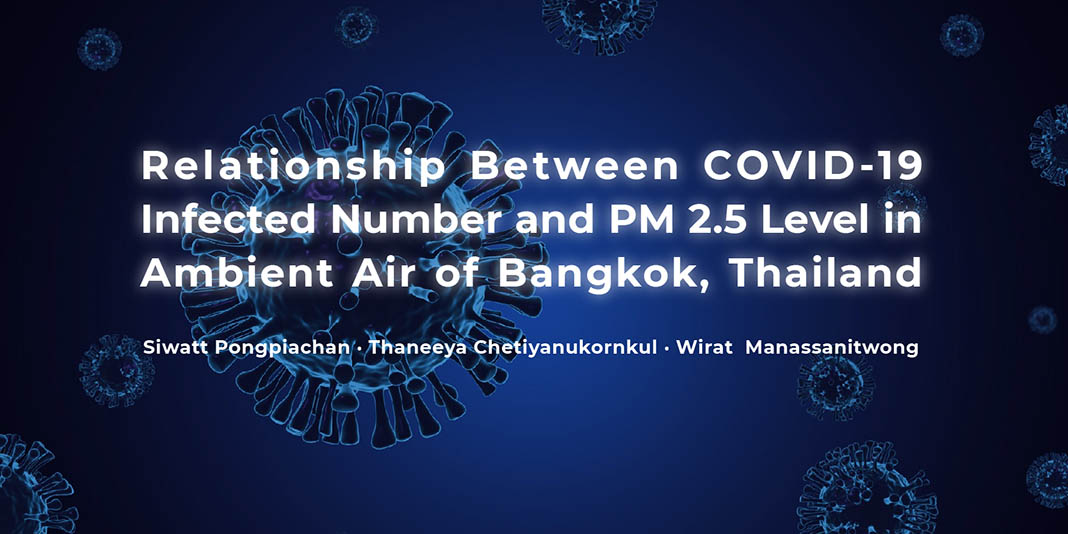Relationship Between COVID‑19‑Infected Number and PM2.5 Level in Ambient Air of Bangkok, Thailand
- Details
- SDGS - Research

Relationship Between COVID‑19‑Infected Number and PM2.5 Level in Ambient Air of Bangkok, Thailand
Professor Dr. Siwatt Pongpiachan (School of Social and Environmental Development, National Institute of Development Administration), Thaneeya Chetiyanukornkul, Wirat Manassanitwong
Abstract
Several empirical studies of reductions in air pollutants as social distancing and working from home (WFH) policies have sparked recommendations that the COVID-19 pandemic might have been responsible for better air quality particularly in urban area. These findings offer a compelling provocation for the scientific community to detect and investigate variations to air quality as a consequence of government enforced quarantine.
In spite of countless research studies focusing on the connection between WFH policy and air pollutant levels, the majority of discussion has unfortunately ignored the central role of other potential sources (e.g. agricultural waste burnings, cooking emissions, and industrial releases) in governing air quality, or has neglected the psychological and social impacts of COVID-19. In this study, a t test was used to compare the average concentrations of PM2.5 and COVID-19-infected numbers (n) in three different periods which were n < 300 vs. n ≧ 300, n < 500 vs. n ≧ 500, and n < 700 vs. n ≧ 700. Some significant differences were observed in the groups of n < 500 vs. n ≧ 500, and n < 700 vs. n ≧ 700 indicating that the psychological and social impacts play a crucial role in restricting daily activities and thus reducing the atmospheric contents of PM2.5 in some areas. Further assessments were conducted by separating PM2.5 contents into three different periods (i.e. Period-I: day-1 ~ day-10; Period-II: day-11 ~ day-20; Period-III: day-21 ~ day-31). Some significant reductions of PM2.5 during the Period-I were detected in the eastern area of Bangkok. In addition, Pearson correlation analysis showed that hot-spot numbers appear to be a minor of importance in controlling PM2.5 levels in the ambient air of Bangkok, Thailand.
อ่านเพิ่มเติมได้ที่ : Relationship Between COVID‑19‑Infected Number and PM2.5 Level in Ambient Air of Bangkok, Thailand